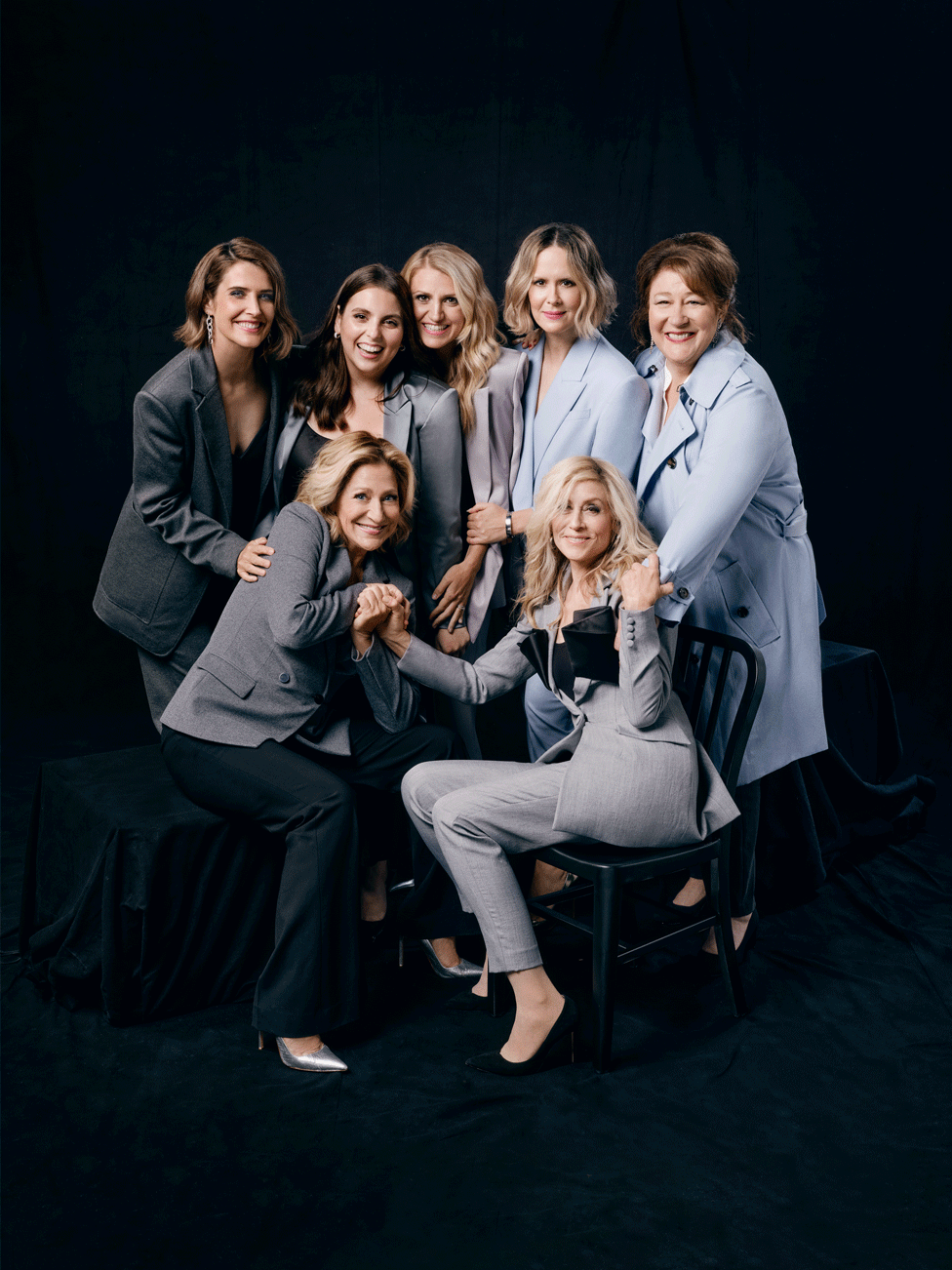Balance of Power
Almost twenty years before the country’s #MeToo reckoning, news of an affair between a U.S. president and an intern rocked the nation. Now, with Impeachment: American Crime Story unfurled on FX, viewers can reconsider the events that left the women involved reeling from cultural and legal assaults.
One of the first things playwright Sarah Burgess thought when asked to write Impeachment: American Crime Story, a dramatization of the crisis that engulfed Monica Lewinsky, Linda Tripp, Paula Jones and President Bill Clinton, was that she wasn't sure she was a good fit. "I had mixed feelings," she says. "I thought it was so clear what had happened."
But a teenage memory kept buzzing in her mind: when Burgess was in high school, her mother, then a U.S. Navy commander working at the Pentagon, would come home at night and share stories, but not of top-secret intrigue or global disasters miraculously averted. What Burgess's mom spoke of was her mostly male coworkers and their ground-level obsessions: whose cubicle was larger? Who got the prime parking spot?
"What I loved is that she'd talk about office politics, about the little petty office dramas and all of her frustrations," says Burgess, who knew that growing up in D.C. in a military family gave her human-scale insights into a world most people only read about. "This is a culture that I know. Monica and Linda met at the Pentagon; they were both sort of exiled from the White House. They were the sort of office ladies that no one pays attention to and aren't very important in the scheme of things. That's what grabbed me and got me started writing."
The people behind American Crime Story try to keep a few key things in mind when building a season of FX's true-crime limited series. The first, says executive producer Brad Simpson, is that the piece of history the season will focus on passes what he calls the American Crime Story "litmus test."
"It has to be a crime that indicts the audience, a national crime that everybody thinks they know about but actually don't," Simpson says.

Unlike the previous two American Crime Story installments — 2016's The People v. O.J. Simpson and 2018's The Assassination of Gianni Versace — no grisly murder lies at the center of Impeachment. But what made the affair between a U.S. president and a buoyant, twenty-something White House intern suitable for reexamination, Simpson maintains, was that it had always been told from a man's point of view.
"It's hard to find anybody in America who wasn't guilty of not just taking sides but treating it like a big soap opera," he says. "Monica, as we all know by now, was treated horribly. All the women were treated horribly. We always thought the way into this [project] was through the women."
Burgess, also an executive producer of the series, received a mountain of research — articles, books, FBI interviews and tapes of nearly twenty hours of phone conversations with Lewinsky that Tripp secretly recorded and then gave to independent counsel Kenneth W. Starr. The credits say Impeachment is based on Jeffrey Toobin's 2000 bestseller A Vast Conspiracy: The Real Story of the Sex Scandal That Nearly Brought Down a President. Yet in conversation, Burgess is more likely to cite a factoid she picked up from a Lexis-Nexis search or from Ken Gormley's 2010 book The Death of American Virtue: Clinton vs. Starr, or something she heard on the second season of the Slate Plus podcast Slow Burn.
"Digging into the Monica and Linda part of it," Burgess says, "was obviously the most interesting story to me."
Her investigation into all things Monica included discussions with Lewinsky herself, an exception to an American Crime Story tenet.
"A rule to date is to never meet any of the real people [involved in the crime]," Burgess says. But there she was in 2019, battling an overwhelming case of nerves as she drove to the San Vicente Bungalows, an exclusive West Hollywood social club, to get some face time with Lewinsky, who'd been persuaded by executive producer–director Ryan Murphy to come aboard as a producer.
"I wanted her input. Morally, it would be weird to tell her story and not [have it]," Burgess says, adding that Lewinsky took her job seriously, reading scripts, giving notes and excavating details she'd probably rather forget. "She was very willing to go places. She was punished by the culture for being a complicated, full human being. People picked apart her life and her past."
To read the rest of the story, pick up a copy of emmy magazine HERE
This article originally appeared in its entirety in emmy magazine, Issue No. 12
Get a peek behind the scenes of our cover shoot with the Impeachment cast here.


















